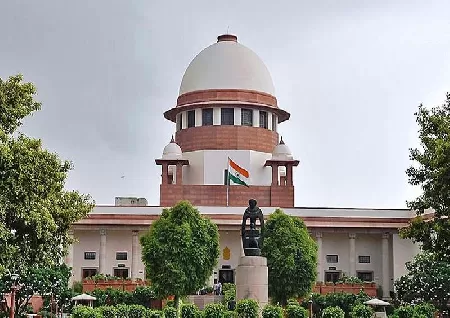Supreme Court: Can’t accept Art 370 ceased to apply in 1957

The Indian Constitution would not apply to the state of Jammu and Kashmir if it were claimed that Article 370 of the Constitution ceased to be in effect after January 1957, the Supreme Court questioned on Tuesday.
The Indian Constitution's application to the state of Jammu & Kashmir would be frozen as of January 1957, according to the overall effect. Therefore, in your opinion, the state of J&K in 1957 is not subject to any future developments in Indian constitutional law? The petitions were being heard by a five-judge Constitution bench, led by Chief Justice of India D Y Chandrachud, who questioned how that could be accepted.
The CJI was replying to arguments made by senior attorney Dinesh Dwivedi, who claimed that when the J & K Constituent Assembly ceased to exist in January 1957, the clause in Article 370 was no longer in effect.
Dwivedi used N Gopalaswami Ayyangar's statement to the Indian Constituent Assembly on the "commitment" made to the people of J&K to support his claim that the nation cannot undo it.
However, the bench, which also included Justices S K Kaul, Sanjeev Khanna, B R Gavai, and Surya Kant, stated that while Constituent Assembly debates have an impact on how the Constitution is interpreted, they cannot be given any sort of finality.
Dwivedi said that if the discussion states that there is a "commitment that the J&K Legislative Assembly would decide the Constitution, what is the use of the commitment made, and what is the use of the Constitution when it cannot finally lay down anything?"
You are now attempting to insert a finality factor into the deliberations of the Constituent Assembly, CJI Chandrachud said. How is that possible?
The CJI further questioned whether a member of the Constituent Assembly's speech, "however weighty," could be interpreted as a "affirmation of the commitment of the nation or the dominion of India to the state of Jammu and Kashmir." This "would have an impact on the interpretation of the Constitution," he claimed.
The CJI questioned how it could be elevated to the point of being a legally binding commitment.
It was "not by any member, but on behalf of the person who answers all queries on the amendments made—there is a difference," Dwivedi said.
Related queries to this article
- supreme
- court
- can
- t
- accept
- art
- 370
- ceased
- apply
- 1957
Read more articles and stories on InstaSity Latest News.

